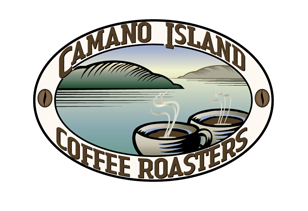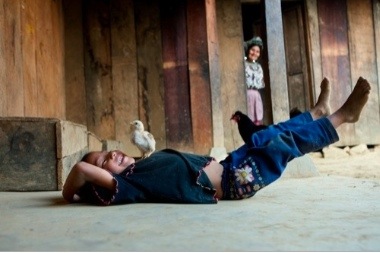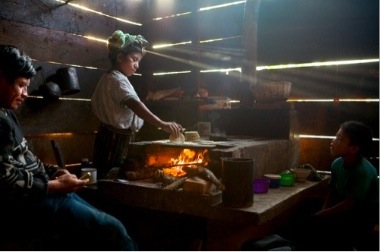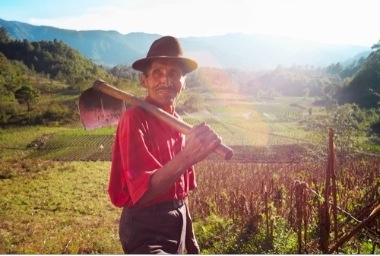An Interview With Ira Lippke
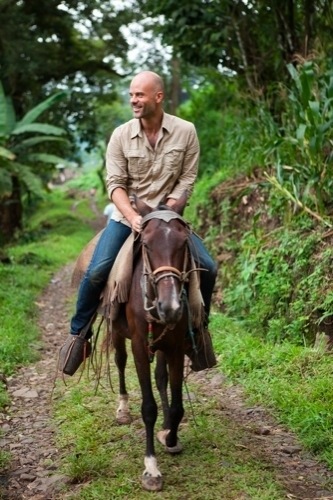
I recently got a chance to spend about 30 minutes on the phone with Ira Lippke. For those that may not follow us on Twitter or Facebook – or possibly just missed the messages we’ve sent, Ira is responsible for much of the photography you see on CICR’s website and some literature. He also plays a big role in the photography found on Agros’ website. Ira is a gifted photographer who is passionate about fair trade and ethical coffee.
I wanted to share a large excerpt of our conversation with you all…
Dan: What started your love for photography?
Ira: One day I was at the Stanwood (Washington) library. We had just picked up some pictures from the local photo lab and while my parents went in, I was sitting in the car looking through these family snapshots. I was 14 at the time, and I realized a couple things while looking through those pictures:
- I realized that I had so much to be grateful for. There was so much beauty everywhere surrounding me. Looking at the pictures enabled me to objectively stand outside of my life and realize I had a lot to be grateful for.
- Photography is such a powerful medium.
- Our photos weren’t very good. It seemed that most of the photos I ever saw were dark, grainy, and lacking detail and quality. I wanted to know how to take a good picture, so I ended up going in to the library and checked out a couple books on photography. My father let me borrow his old Olympus camera and I was set.
I would often go with my friend David and take pictures just for the fun of it. Our main goal was just to take interesting photos of things we would see everyday. I ended up attending Biola University and I got the job as the university photographer. At the time, I was studying History, Philosophy, and Literature – I was working towards a Humanities Degree. During my years at Biola, I was able to pay my way through school with photography. I became known as “the photographer” among many at school. My Junior year, I took a break and started my business while living in Warm Beach (Washington). I did a lot of photography for bands at the time and shot various album cover pictures.
Dan: Did you go back to school after starting your business and finish your degree?
Ira: Yes, I finished my education at Biola and received my degree in Humanities – Which I feel adds a little more substance and content to my photography rather than if I had studied photography itself. My pictures are about these same dramas and questions that literature, history and philosophy are about. I love telling stories and showing the human element. It’s been 10 years since I started my business and I now have two locations… first in Los Angeles and one in New York.
Dan: What photography style would you say is your “main” style?
Ira: I describe what i do as “Fine Art Documentary Photography”. It’s a photography approach that tells stories, but with an awareness of the elements of fine art (line, color, texture and form). These days I’ve been shooting some of the top weddings in the world, and also documenting humanitarian issues internationally. I go from shooting tragic issues in remote areas and then several days later find myself photographing VIPs in Beverly Hills, Italy, Pebble Beach, or the Turks & Caicos. This creates a really telling contrast. I’ve shot some remarkably exquisite weddings – but then I go to these really grounding areas which really fills out the human element for me.
Dan: How did you hear about Agros?
Ira: I’m good friends with Sean Dimond at Agros. I knew Sean before he worked for Agros and he has always been involved in humanitarian work. He told me about Agros and not long after got a job there. He is now the Director of Communications for Agros.
Dan: How many trips have you been on with Agros and where to?
Ira: I’ve gone on a total of 4 trips with Agros and have visited Honduras, Nicaragua, Chiapas, and Guatemala.
Dan: What was it that made you decide that Agros was a fit for you?
Ira: I always refer to Agros as my favorite charity. As I’ve travelled to Africa 4 times, Indonesia 2 times, the Middle East, India and quite a few other places, I often find myself in areas where humanitarian groups are working. Typically, solutions involve the West giving charity away to these areas but, unfortunately that is often times damaging to the local economy and the local sense of dignity. Charity of that nature can create a culture of dependence and undercut the local economy.
When I was recently in Southern Malawi I asked the chief of one of the tribes where I could go to take documentary photos. He sent me to his home village that, it turned out, he sends all visiting humanitarian groups. While I was there, people kept telling me how they needed more help for this and that and they were continuously asking for money. The generosity of the West had created a dependance there. Agros villages are the exact opposite. They are proud of what they’ve done and they are so generous. They don’t ask for money, but instead they often come up to me with big smiles and plates of food. It’s a different experience from other models I’ve experienced.
What I love about Agros is that they empower those in need to help themselves – and does it through the local economy rather than by undercutting it. It’s so much more sustainable that way. It shows that the solution is through hard work, and not handouts. Agros’ work is so humane and dignifying. It’s been an honor to get to know and document these extraordinary people living in Agros Villages. Honestly, these hard-working, hope filled Agros villagers are my heroes.
I had a great conversation with Ira. One thing that is hard to relay in type, is passion. Ira is definitely passionate about his love of Agros and their work.
I hope you enjoyed reading this as much as I enjoyed doing the interview and putting it together for you!
Dan Ericson
“Coffee Guru”
CICR
